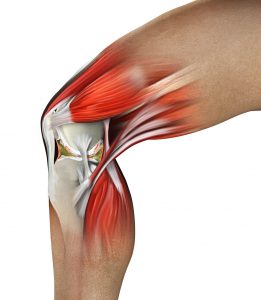Microfracture vs Articular Cartilage Tissue Implant?

A promising new procedure to repair damaged articular cartilage in the knee by harvesting, growing, and reimplanting a patient’s cells is being compared in a clinical trial with microfracture surgery, the current standard of care.
The trial is assessing the efficacy of a third-generation autologous chondrocyte implantation (ACI) procedure, known as NeoCart (Histogenics, Waltham, MA), which is used to treat painful cartilage lesions in patients with knee injuries or osteochondritis. The trial will provide a randomized outcome comparison between the ACI procedure and microfracture.
Duke is the only medical center in the Mid-Atlantic participating in a phase 3 clinical trial comparing the cartilage tissue implant with microfracture, says Dean C. Taylor, MD, an orthopaedic surgeon and lead investigator at Duke.
The trial, which is currently recruiting patients, will assess the latest iteration of the ACI procedure. After cartilage is harvested during arthroscopy, laboratory staff will isolate the chondrocytes, incubate them, and allow them to multiply. Cartilage cells will then be returned in an implant that will be contoured to fill the cartilage defect during a second procedure.
The trial is being sponsored by Histogenics, the developers of NeoCart. Trial enrollment is expected to close in June 2018.
NeoCart implantation is effective for repairing cartilage lesions less than 3 cm in diameter, Taylor says. Lesions larger than 3 cm in diameter require other techniques because NeoCart is a disk-shaped implant approximately 3 cm in diameter.
“We are still working toward a good solution for patients with a defect in the articular cartilage on the surfaces of the femur within the knee,” Taylor says. “Using the patient’s own cartilage to fill the defect is probably the way to go.”
Microfracture is an effective procedure, says Taylor, who underwent training to perform the technique. “But we still have questions about the durability of repair and the ability of the patient to return to the previous level of activity,” he adds. “NeoCart is potentially a breakthrough procedure that can lead to better long-term results for these challenging cartilage defects.”